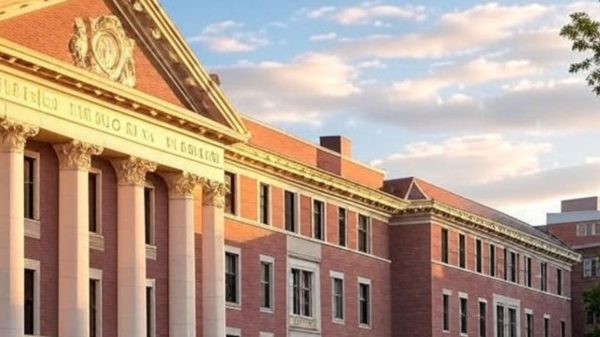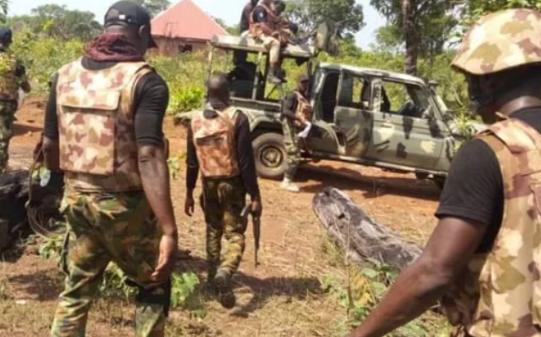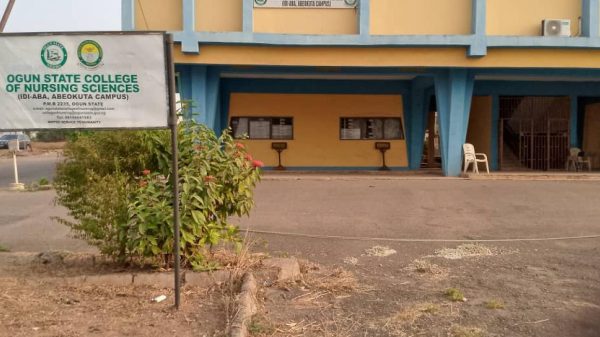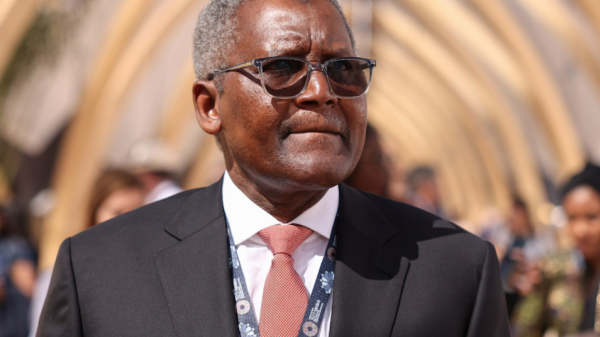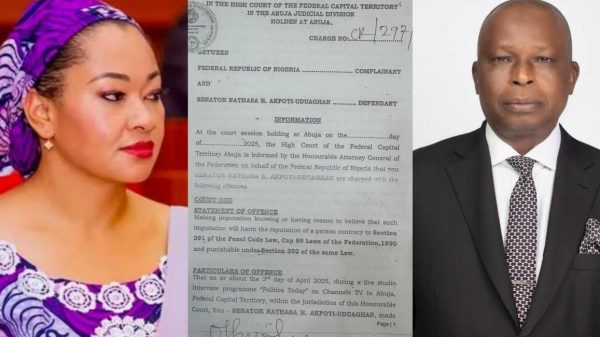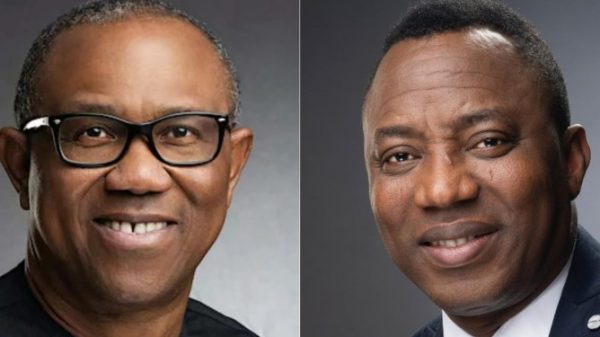The Management and Editorial Board of the All Africa Media Network, in collaboration with the Søren Kierkegaard Academic Society and Global Africans Against Slavery (GLAAS), invites scholars, practitioners, and interdisciplinary researchers to submit original, thought-provoking, and creative research papers for presentation at the 5th African Elders and Women Intercultural Dialogue.
This year’s theme is:
“Exploring the Economic, Political, Social, and Cultural Intricacies Sponsoring Human Trafficking and Migrant Smuggling in Africa”
The conference will be held in a hybrid format (both virtual and in-person) from July 29 to August 2, 2025.
Conference Objective
The 5th African Elders and Women Intercultural Dialogue (AEWID) provides a vital forum for academics and knowledge-bearers to engage critically with the multi-dimensional nature of human trafficking and migrant smuggling in Africa. Participants are encouraged to contribute to a collective academic endeavor by submitting papers for inclusion in the AEWID 2025 Conference Journal, which aims to bridge scholarship, policy, and grassroots perspectives.
This initiative seeks to foster transnational and multi-sectoral collaboration, presenting a unified and actionable front in the global fight against trafficking in persons. Recognizing that data and experiences are often deeply localized, the conference provides a platform for converging varied understandings of the structural drivers of trafficking into a shared analytical and ethical framework. The goal is to generate holistic insights and promote coordinated responses that are contextually rooted and globally resonant.
Framing the Inquiry
The central question guiding this conference is:
Do we understand the challenge of human trafficking in terms of its interrelated structural causes, or are we engaging with it primarily through the lens of institutional and organizational interpretations of the problem?
The latter perspective, while important, often leads to fragmented interventions that reflect a narrowed conception of trafficking. AEWID calls for a more comprehensive and culturally situated approach—one that recognizes trafficking not only as a complex web of socio-economic relations but also as a mirror of our collective relationship to justice, community, and human dignity.
This framing reflects the deeper philosophical and cultural inquiries that have informed the Intercultural Dialogues thus far—interrogating the “why” that precedes every meaningful engagement with policy, activism, and scholarship.
Sub-Themes for Paper Submission
Submissions are invited across, but not limited to, the following areas of focus:
1.Structural Poverty and Social Inequality in Africa:
Examining the influence of global economic systems on vulnerabilities to trafficking and smuggling.
2.Gender-Based Violence and Labour Exploitation:
Understanding trafficking as a contemporary manifestation of slavery and gendered exploitation.
3.The Nexus of Poverty and Inequality as Root Causes:
Investigating the interplay of economic hardship and social exclusion in the perpetuation of trafficking.
4.Human Exploitation and Dignity:
A humanized analysis of organ trafficking and sexual exploitation within modern trafficking networks.
5.Media and Mass Communication:
Exploring the potential of media to raise awareness and mobilize action against human trafficking.
6.Continental Trade, Globalization, and Technology:
Considering industrialization and digital innovation as alternatives to exploitative economies.
7.Local Governance and Cultural Leadership:
Evaluating the roles of political will, grassroots leadership, and legislative frameworks in dismantling trafficking systems.
Submission Guidelines
- Length: 3,500–4,500 words
- Language: English
- Formatting: MLA or APA (6th edition) for citation and referencing
- Format: Typed, double-spaced, Times New Roman, font size 12
- Abstract: Approximately 250 words
- Submission Format: Microsoft Word (.doc or .docx)
Submissions must be original and should be sent via email to:
glaas2020@gmail.com
All manuscripts will undergo a double-blind peer review process. Accepted papers will be published in the Conference Proceedings Journal, which will also be made available online at www.theglaas.org.
Important Dates
Abstract Submission Deadline: May 30, 2025
Full Paper Submission: June 15, 2025
Notification of Acceptance: June 21, 2025
Final Version Submission: July 1, 2025
African Presenters $25, Academic Presenters $50 and Professional Presenters $100
We look forward to your contribution to this significant academic and ethical dialogue, as we work collectively toward dismantling the systems and conditions that enable human trafficking and migrant smuggling in Africa.
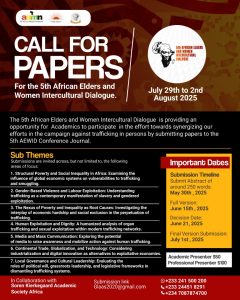
Call for Ppaers at 5th African Elders and Women Intercultural Dialogue

